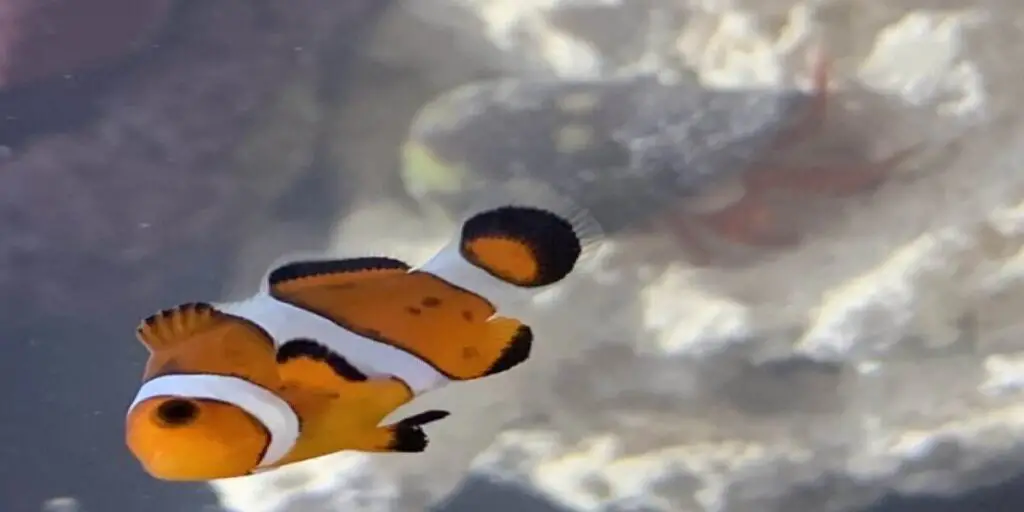Discover the intriguing world of black spots on clownfish. Explore their significance, causes, and how to care for your clownfish. Dive in now.

Clownfish, with their vibrant colors and endearing personalities, have enthralled saltwater aquarium hobbyists for decades. However, they can develop mysterious black spots, leaving their caretakers concerned and puzzled.
In this article, we’ll discuss the various causes of black spots on clownfish and how to treat them. Additionally, we’ll offer advice on how to prevent these spots from appearing in the first place, ensuring the health and happiness of your clownfish.
Causes of Black Spots on Clownfish
Several factors can contribute to black spots appearing on clownfish. Understanding the diverse causes can help you better identify and treat the problem.
Coral Stings
While clownfish are naturally immune to their host anemone’s stings, other corals in an aquarium can sting them. The resulting coral stings can leave black spots on their skin and may trigger other symptoms like swelling, redness, or itching.
Clownfish Parasites
Parasites also cause black spots on clownfish. Some common parasites infecting these fish include black ich, velvet, and brooklynella.
Injuries
Cuts, scrapes, and bites can cause infections that manifest as black spots on clownfish skin. It’s important to check for injuries if their skin displays black spots, as they need a different form of treatment.. Stress
Last but not least, stress can cause black spots on clownfish. Poor water quality, overcrowding, and bullying are common culprits that induce stress in these fish.
Treatment for Black Spots on Clownfish
Treating black spots on clownfish depends on their cause. Let’s explore the appropriate treatments for each factor:
Coral Stings:
When coral stings cause black spots, remove the clownfish from the main tank and place it in a quarantine tank. Treat the sting area with a topical medication suitable for coral stings.
Clownfish Parasites:
If parasites are the cause, treat the entire aquarium with an appropriate medication. If needed, you may quarantine the infected clownfish and administer a concentrated dose of the anti-parasitic medication.
Injuries:
When dealing with injuries, clean and disinfect the affected area and apply a topical medication to prevent infection.
Stress:
If stress seems to be the primary cause, pinpoint and eliminate the source. You may need to improve water quality, provide extra hiding spots, or address any other factors causing stress.
Prevention of Black Spots on Clownfish
Proper care plays a significant role in preventing black spots on clownfish. Some preventive methods include:
- Maintaining ideal water parameters and quality.
- Investing in an efficient filtration system.
- Regularly cleaning the aquarium and changing the water.
- Feeding a balanced and healthy diet.
- Avoiding overcrowding and ensuring ample space.
- Choosing compatible corals.
- Quarantining new fish or corals before introducing them into the main tank.
- Conclusion
Black spots on clownfish can result from various factors, including coral stings, parasites, injuries, and stress. Proper identification of the underlying cause and appropriate treatments will help ensure the health of your clownfish. By paying attention to the care and maintenance of your aquarium, you can avoid facing this problem altogether.
You May Also Like: